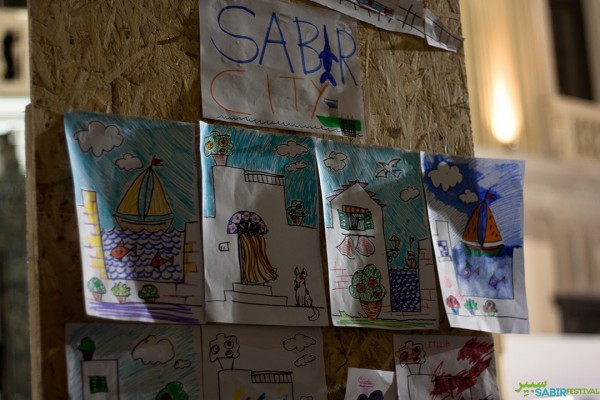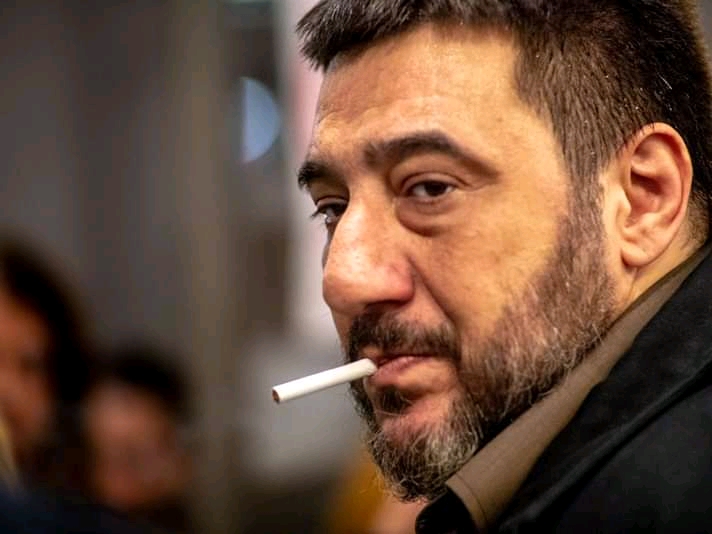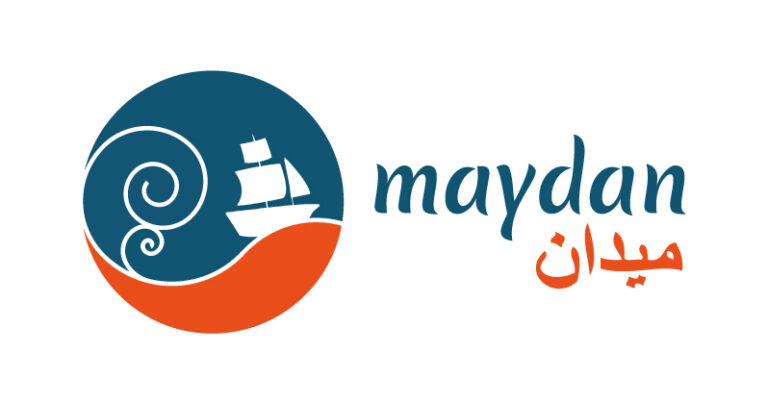SabirFest 2018 closed its doors on October 7, only a few days ago, and already it seems it was ages ago. A group of activists from the Mediterranean region, known under the name of Maydan, has been hosted there over the last five years to hold dialogues and debates on the challenges of the region, with special focus on the status of democracy, freedoms and rights, intercultural dialogue, international solidarity, ecological transition and human mobility. The location of the Maydan dialogues at SabirFest was not a coincidence. With the festival taking place in three cities along the strait between Calabria and Sicily (Messina, Reggio Calabria and Catania), the spot was chosen for its symbolism: the juncture where the two shores meet, and with that, the Northern and Southern shores of the Mediterranean.
This is also a narrow piece of border where migrants keep trying to reach Europe, despite Italian harbours being sealed off for rescue hips. I am saying that ages have passed already because the daily chronicles run faster than any initiatives for the Mediterranean as a common destiny. Our initiatives seem ineluctably to be breaking on the rocks of fresh governmental decrees incriminating migrants and cutting funds for migrant reception, and judiciary initiatives reducing the space for solidarity. The mayor of Riace was put under house arrest two days before SabirFest’s opening, with the accusation of facilitating illegal immigration and irregularities in the waste collection service. On October 13, the Italian Ministry of Interior ordered the displacement of all asylum seekers hosted by reception facilities located in the municipality of Riace. Riace was up until a few weeks ago a worldwide symbol of good practices in integrating migrants and regenerating old villages under an irreversible senescence process. Many of the Calabria villages like Riace had been abandoned by its inhabitants who left misery after World War II. With the new migrant arrivals, history had finally taken another course. Riace was preached as an outstanding innovative social laboratory where humanity could find a new rebirth. That up until a new government took the power in Italy, and the Northern League launched its crusade against immigrants and immigration policies. So, while SabirFest was
screening Il volo, a movie by Wim Wenders on Riace’s story, the Ministry of Interior was preparing the closure of all migrant facilities there. While solidarity operators were meeting in Messina, Catania and Reggio to talk about good practices and challenges, in Lodi, a municipality of Lombardy, children of migrants were excluded from the public schools’ cafeterias because the Northern League’s mayor had adopted new rules making it practically impossible for refugees to benefit from discount bonuses for low-income households. In a few days, this forced many immigrants’ kids to abandon the cafeteria service for economic reasons, and eat a home-made sandwich alone in a corner of the school away from the other kids (1) . Only a voluntary money collection campaign, promoted by indignant citizens, helped those kids to go back to the cafeterias on October 16.
My Calabrian friends confirm that the Mayor of Riace might have committed administrative irregularities, and in fact inspections had already been carried out in the past and requests to review expenditures and accounting practices were already submitted to the local council. But they add that he never acted for his own benefit and lucrative interest; on the contrary, he tried to use laws and funds with flexibility in order to solve human dramas and give a future to this dying village. Again, it is the dilemma of humanity versus legality, between the rule of law and the imperative of human justice.
SabirFest embraced the dilemma in its programme, since the 2018 edition was entitled “Repairing the Human”. The work on the ground is, however, difficult; the efforts carried out for changing minds and opening societies immense, while the fruits of these endeavours seem to ripen only after we have lost hope. Times are showing signs of growing hostility toward foreigners, legitimisation of hate speeches and discriminatory measures, approved narrowing of freedoms and rights, and nonchalant propagation of “so what” reactions in the public opinion. I could not finish this article before another news item reached my ears in the morning: the decision of the prefect of Florence (a Ministry of Interior’s authority) to impose a kind of curfew on asylum seekers hosted in local reception facilities: they must be back in the centres by 8PM. The same order also states that, when they receive packs via postal services, these should be opened in front of facility operators, so as to prevent that they contain “purchases which are disproportionate to the declared socio-economic condition”. (2) The ppalling thing is that the prefect had not received any previous instructions from the Italian Ministry of Interior, so she declared to the press, and that such a locally prompted measure hits exactly a town which has traditionally been progressive and open to others. While authorities show off their low-cost obstinacy against migrants in the name of the rule of law, at the same time tax evasion in Italy has reached record levels (up to €38.5 bn of tax gap, i.e. fiscal revenue lost by the State in 2017), and nobody seems to be seriously challenging evaders. (3) So, what to do in the face of these misrepresentations of reality and scapegoat politics which affect the weakest in many ations? What to do in the face of the emergence of new forms of political repression and economic slavery which bring social divisions, and organises people into A and B citizenship categories?
How far and how long can cultural action stand against migrant hate speeches, new discrimination practices and criminalisation of solidarity? Is a creature like SabirFest still effective and necessary? Are all the energies spent in raising awareness, stimulating debate and educating people a loss of time and a strategically non-relevant endeavour?
SabirFest 2018, despite its organisational limits, the lack of substantial public funds and the lack of interest of two out of the three local governments of the towns involved, reached almost 120 events and gathered 240 guests coming from over twenty countries (at least one fifth of them being non- Italians).
But when you see what happens around you, in Italy or in Syria, in Egypt or in Bosnia- Herzegovina, Austria or Turkey, or even in the festival’s towns, where at last spring’s municipal elections voters awarded the majority to conservative or right-wing coalitions, you wonder if you are doing the right thing at this precise moment. I do not have an answer.
I have personally invested in this experience of connecting and merging culture and citizenship affairs in a Mediterranean prospect for at least the last five years.
Every year that goes by, things around us look worst. I am convinced that one of the reasons for the steps backward for progressive thinking and solidarity-driven activism is the blatant divisions affecting groups and movements of that social and political field, as if only
nationalism, hate or selfishness unites the diverse voices and interests. Another reason is the lack of political vision for Europe and the Mediterranean; its absence is filled with fears and barriers, and nowadays Europe and the Mediterranean – both neighbouring entities for countries like Italy – are seen as threats or even enemies, in a spiralling temptation toward isolation which only favours internal authoritarianism and the geo-political powers promoting it in the world. That was part of the work activists gathering at SabirFest had envisioned and that has inspired our “Manifesto for Mediterranean Citizenship”, which defends an alternative and positive horizon where Europe and the Mediterranean meet and integrate.
As one of the founders of SabirFest, I have joined a group of people trying to imagine other ways, other roads. This is the group that has funded Maydan. We have many ideas on our plate. One of them is the launch of trans-Mediterranean campaigns on issues of common nterest, conceived and structured simultaneously on the two shores of the Mediterranean, which focus on sensitive issues such as freedom of expression and the right to mobility. Another one is to promote on-line trans-Mediterranean radio or audio-visual instruments to offer a different narration on the Mediterranean, using participatory and community radio-journalism resources, and to produce political, social and cultural reports in different languages; an additional one, is the implementation of tools such as a job offer/search portal to promote professional opportunities in the particular field of civic engagement, intercultural dialogue and social and solidarity economy, aimed at young people on both shores of the Mediterranean. As you can see, the problem is twofold: resources, and impact. Fair enough, we suffer from financial shortages. But: would the situation be different, if we had the money? Would we be able to impact on our societies?
Yet SabirFest was an amazing “greenhouse” full of brilliant minds, creative works and political hopes: there you could exchange with sraeli filmmaker Avi Mograbi, considered the Middle Eastern Michael Moore; listen to Egyptian choreographer Nora Amin, who invented the Theatre for Change; or talk to Albanian Besnik Mustafaj, novelist and inspiring figure of his country’s democratisation. Or perhaps discuss mobility and Fortress Europe with Italian journalist Gabriele del Grande; watch the artistic work on migrants’ routes by Spanish photographer Juan del Gado; exchange with Samer Aldeyaei, the director of the Free Syrian Lawyers Association, documenting crimes of war and against people’s property rights in Syria; you could talk about the challenges of welcoming refugees in border towns with Kios Municipality’s spokesperson Christos Spiliopoulos; imbibe the positive energy of Lebanese Mona elHallak, the founder of the Beirut Madinaty citizens’ movement; raise questions on the Eastern European nationalistic surges with Polish activist Jan Horzela; or realize how vivid the injures of past conflicts are with Algerian writer Samir Toumi. Just to name a few. The concept of a space where culture and active citizenship meet and reflect is a winning one, but … it does not reach the masses, and we, therefore, have to go beyond.
SabirFest can continue, should continue and multiply (that has in fact been our effort with the idea of the Sabir Offs, one of them held with Cantiere Giovani in the Neapolitan outskirts, a district where the Camorra imposes its rules). On the other hand, we must shift our attention, invest more on taking risks and engaging with regular people. We must change the narrative on the Mediterranean in the streets. Unrealistic, maybe, but we cannot keep playing the role of activists like we have been doing so far. I have no clear answers, this is an open call to rack our brain and proceed by trial and error. Something crosses my mind. Citizen activism is an area to be explored through experimental attempts of participatory strategising and collective organisation. It is difficult at this stage to envision how to proceed in time and space. The idea laying beneath is gathering both engaged citizens and un- experienced beginners from the two shores into an articulated process, as if they were forming a Mediterranean “shadow-government” which elaborates theory, narrative and policy orientations; enhances coordinated action through exchange and mutual support; and addresses the public offering stories which embody another Mediterranean vision and denounce what conflicts with it. It seems to me as if it were not a matter of being genuine Leftists, at least, it is at least not such a matter anymore. When humanism is in danger, we have well passed over the lines of conservative or liberal values, we are slipping into something new and dark. Help us understand how to reverse the direction.
1 An order from the League’s mayor of Lodi, Ms Casanova, impedes access to school services’ discount rates to children of foreign low-income households. The case originated in the summer of 2017 when Ms Casanova signed a resolution that modified the rules to benefit from the reduced rates for the school cafeteria and the bus service. The rule said that parents born outside the EU must submit additional documentation issued in their countries of origin to certify their poverty status. Documents that are often difficult or impossible to obtain. As a result of this measure, only 5 of roughly 300 requests of discount rates coming from foreign households were accepted. The voluntary group Uguali Doveri collected €60,000 from private citizens in a few days, allowing those kids to finally access the school services on October 16, and at least until the end of the year. At the same time, a complaint has been filed with the Italian court for discriminatory practices (Source: ansa.it; agi.it).
2 Regulation issued on October 15, 2018, by prefect Ms. Laura Lega.
3 Source: Senato della Repubblica. Impact Assessment Office, Under reporting. Evadere informazioni sui redditi è indice di evasione fiscale?, January 2018.
Gianluca Solera
Florence, October 18, 2018



